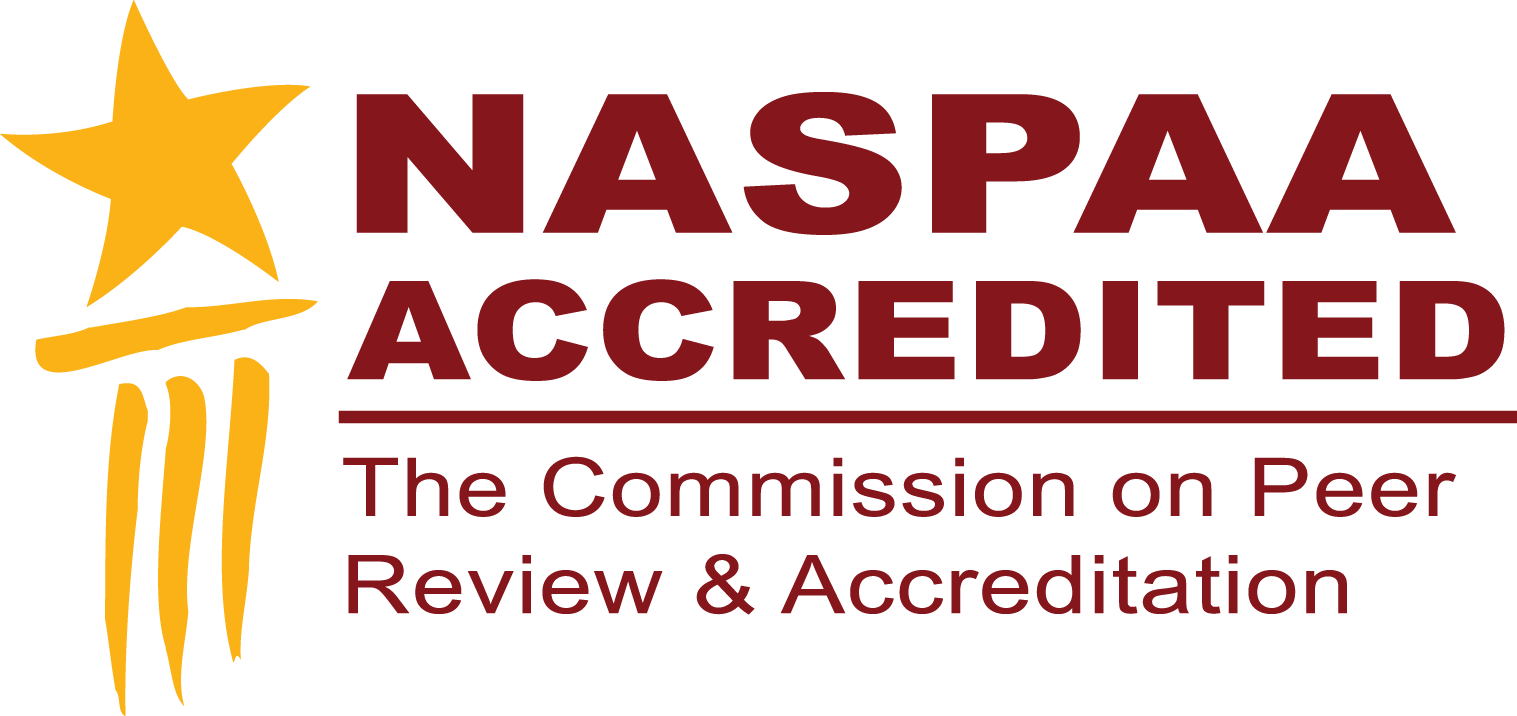
Charter School Leader
View Career BriefWith coursework rooted in research, analytics, ethics, and leadership, MPA students are well equipped to thrive in public service and drive meaningful change. Versatile options—including a one-year accelerated or an executive-focused program—allow you to customize your journey to fit your career goals. The MPA program empowers skilled, open-minded leaders ready for impactful roles in public service, from city management and policy analysis to nonprofit and emergency management leadership.

The School of Public Affairs offers three MPA completion options. Regardless of your choice, you’ll be taught by the same faculty, and all graduates receive the Master of Public Administration degree.
Complete your MPA in just 12 months. Fast-track your career in the public or nonprofit sector.
Choose your pace—online, in-person, or hybrid. The MPA is designed to fit your busy schedule.
Advance your career with strategic leadership skills. The Executive MPA blends online convenience with in-person intensives for mid-to-senior professionals.
| AMPA | MPA | Executive MPA | |
| Average Time to Completion | 1 year | 2.5 years | 2.5 years |
| Time Commitment | Full-time | Full-time / Part-time | Full-time / Part-time |
| Total Credits | 36-39 | 36-39 | 30 |
| # of Courses | 12 | 12 | 10 |
| Modality | In Person | In Person, Hybrid, Online | In Person, Hybrid, Online |
| Starting Semester | Fall | Fall, Spring, Summer | Fall, Spring, Summer |
| Cost* | |||
| Colorado Resident, WGRP Resident, Return Peace Corp Volunteer | $27,500 | $23,907 | $27,600 |
| Non-Colorado US Residents/Intl. | $27,500 | $56,784 | $45,300 |
| Out-of-State/ Online Only | N/A | $28,704 | $30,200 |
Please refer to our program pages and contact [email protected] to learn more about the cost for each program.
*Values based on 2024-25 charges and fees not included.
The Master of Public Administration Program at the School of Public Affairs advances public service in Colorado and beyond through quality education, collaborative research, and strong relationships with the professional community. To advance our "Lead. Solve. Change." philosophy, we:
Find additional information about academic policies, graduation requirements, and more.
MPA graduates are prepared for lifelong careers leading in public service organizations. Browse these sample career briefs to learn about duties and responsibilities, career paths, salaries, and more.

Charter School Leader
View Career Brief
City Manager
View Career Brief
Emergency Management Director
View Career Brief
Environmental Program Director
View Career Brief
Interpersonal Violence Specialist
View Career Brief
Nonprofit Executive Director
View Career Brief
Nonprofit Leader
View Career Brief
Policy Analyst
View Career Brief
Public Finance Officer & Budget Analyst
View Career Brief
State Legislator
View Career Brief6f1b4fb4-e007-439f-8733-70f01c7b5421.jpg?sfvrsn=754d48b4_1)
For the past eight years, Jeremiah Unger has worked for the Colorado Department of Transportation (CDOT) as an Environmental Program Manager. Jeremiah focuses on water quality from roadway run-off.
.jpg?sfvrsn=f8a2dfbb_1)
Kelli received her Master of Public Administration with a concentration in Nonprofit Management from the University of Colorado Denver in 2019, where she developed a capstone thesis centered on strengthening corporate-nonprofit relationships in an ever-evolving corporate landscape.
.jpg?sfvrsn=c40348b4_1)
Ali Rhodes is Parks and Recreation Director for the City of Boulder. Her two key responsibilities as Director are to ensure the community is experiencing a high-quality parks and recreation system and that BPR's teammates have the support and skills they need to operate that system.